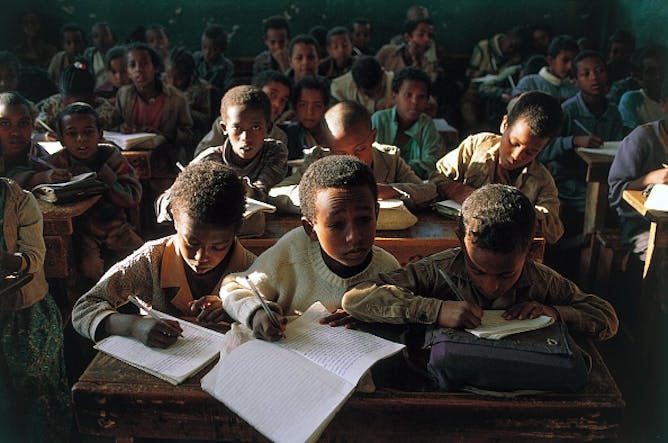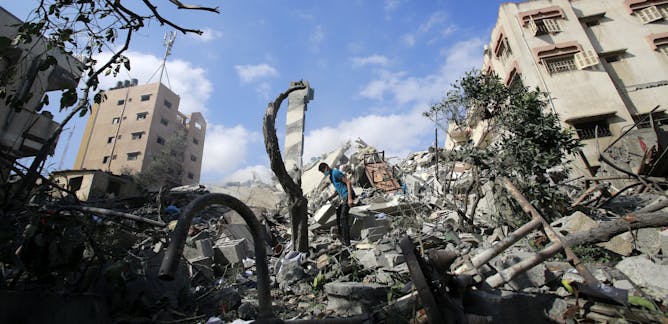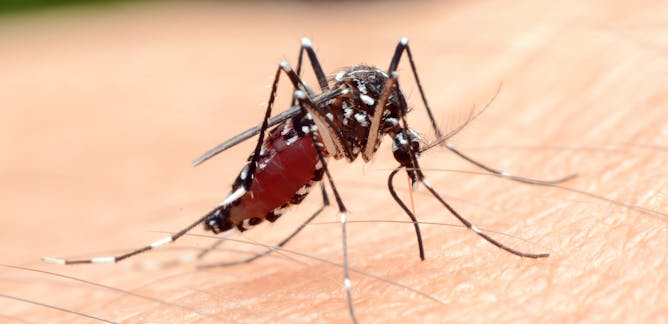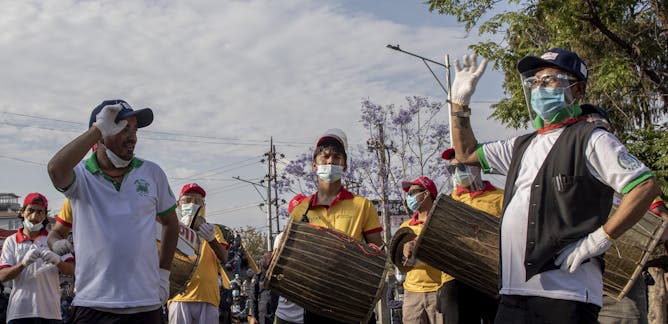|
|
|
|
The last 48 hours have seen the subject of bitcoin in the headlines again as the price of the crypto currency plunged by 30%. Its ability to grab world attention has obscured a more fundamental, and interesting, subject: the far-reaching benefits that could accrue from the technology that underpins it. Iwa Salami sets out how and why blockchain could be a game-changer, particularly for developing countries. She unpacks a deal recently
signed by Ethiopia – the largest blockchain deal ever signed by a government – to create a database of identities of teachers and students. Using blockchain technology to give millions of people a digital identity could have major knock-on benefits.
The conflict in Ethiopia’s Tigray region is now in its seventh month, with reports suggesting that conditions for people living there continue to deteriorate. The head of Ethiopia’s Orthodox Church, Abune Mathias, said recently that “genocide is being committed” in the region, a view echoed by rights groups and media agencies. As Firew Tiba explains, establishing whether genocide is taking place is complicated. No government will
announce its genocidal intentions to the world, which means that only a credible and independent investigation can get to the bottom of the allegations.
|
Caroline Southey
Founding Editor
|

|
|

Children in a classroom in Gondar in the Amhara Region. Ethiopia has signed a deal to register 5 million school children using blockchain.
Photo by DeAgostini/Getty Images
Iwa Salami, University of East London
It's time to shift focus away from bitcoin and to pay more attention to other blockchain projects promising to make real contributions to the world.
|

Protesters chant “Stop the genocide in Tigray!” during a demonstration against Ethiopia’s war against Tigray regional forces on May 07, 2021 in Berlin, Germany.
Photo by Sean Gallup/Getty Images
Firew Tiba, Deakin University
Establishing whether a genocide is happening in Ethiopia requires an independent and objective investigation – which probably won't happen.
|
Politics + Society
|

Asaf Lubin, Indiana University
Both sides in the Israel-Hamas conflict may be violating the international laws that govern armed conflict. A legal scholar explains these rules – and whether anyone enforces them.
| |

Beth D. Packer, Tufts University; Juliana Friend, University of California, Berkeley
The Senegalese culture of discretion, called "sutura", inhibits survivors of sexual violence from publicly denouncing perpetrators.
|
|
|
Science + Technology
|

Osnat Katz, UCL
After the Chinese Zhurong's successful landing, we look at the previous Mars missions that have tried, and sometimes failed.
| |

Todd Austin, University of Michigan; Lauren Biernacki, University of Michigan
Most computer security focuses on software, but computer processors are vulnerable to hackers, too. An experimental secure processor changes its underlying structure before hackers can figure it out.
|
|
|
Health + Medicine
|

Madelien Wooding, University of Pretoria; Yvette Naudé, University of Pretoria
There is a chemical skin surface difference between individuals who perceived themselves as being attractive for mosquitoes and those that weren't.
| |

Michael Head, University of Southampton
Low levels of immunity and high levels of mixing are a perfect setting for the next big outbreak.
|
|
|
En Français
|
-
Marie Duru-Bellat, Sciences Po
La critique de la méritocratie se focalise en général sur son fonctionnement, pointant les biais de recrutement des élites. Mais ne faut-il pas aussi interroger le bien-fondé de cet idéal ?
-
Mohammed Chergui Darif, Aix-Marseille Université (AMU)
Au Maroc, pays particulièrement touché par les inondations, la résilience des territoires est une question cruciale.
|
|
| |
| |
| |
| |
| |
| |
|
|
|
|
|
|
|